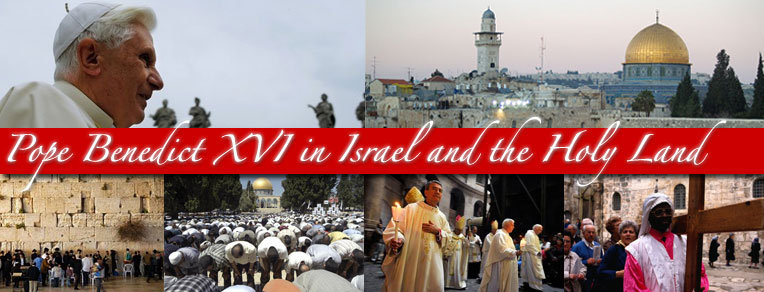 George Weigel on "Parsing the Pontiff" May 6, 2009:
George Weigel on "Parsing the Pontiff" May 6, 2009:No matter how much the Vatican rightly insists that the primary purpose of Benedict XVI's journeys outside Rome is to "strengthen the brethren"—as Christ instructed Peter to do—papal travel is inevitably political travel. Especially when that travel is to the Holy Land.Wherever a pope visits, local interest groups and politicians will lobby for their pound of pontifical flesh, seeking to advance their causes or their ambitions through access to the man in the white simar. Moral credibility is particularly at stake whenever a pope visits a conflicted part of the world: Leaders may not really care what Ban Ki-moon, the secretary-general of the United Nations, thinks of them, but just about everyone short of Kim Jong Il and Mahmoud Ahmadinejad wants it known that the pope thinks that he or she is on the side of the angels.
So it is that Pope Benedict XVI's May 8-15 visit to Jordan, Israel and the Palestinian Authority has dredged up all the usual controversies and questions. What leaders from what groups will the pope see, and what will that mean? What will this German pontiff say about the Holocaust? What will his visit do to advance or retard the "peace process," the position of Israel, the prospects for a Palestinian state? This is inevitable. It's also unfortunate, in that it tends to deflect the world's attention from the most salient personal fact about the pope's journey—that it's a pilgrimage by a man of the Bible to the land of the Bible. While pundits and partisans will interpret Benedict's comments and actions according to the varying political winds and their own agendas, a real understanding of his pilgrimage must start at the true source of Benedict's own thinking: Scripture. [More]










No comments:
Post a Comment